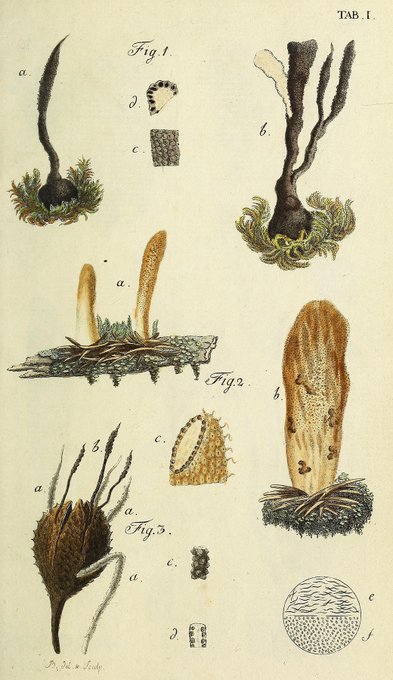MycologyMondayのTwitterイラスト検索結果。 5 件
Intended to post this yesterday for another #MycologyMonday
Here we have the Wine Cap mushroom (Stropharia rugosoannulata) aka the "garden giant". It is also sometimes referred to as the Godzilla mushroom because it can grow up to 20 cm tall and 30 cm across its cap.
Been a little obsessed with mushrooms lately, so let's have a #MycologyMonday.
I give you the King Oyster mushroom (Pleurotus eryngii), the largest species of the oyster mushroom genus.
As a white-rot fungus, it is an important player in wood decay. It is also delicious.
Happy #MycologyMonday! Christiaan Hendrik Persoon (1761-1836) has been called the "father of systematic mycology." One of his early works, "Observationes Mycologicæ" (1796-99), is available in #BHLib via @NHM_Library — it includes a letter from Persoon! https://t.co/GVvvwVwu1p
#MycologyMonday: "Histoire des champignons comestibles et vénéneux" details the characteristics of a variety of edible and poisonous mushrooms. 🍄
Find the 2nd ed. (1841) in #BHLib via @uofglibrary @internetarchive ➡️ https://t.co/dKJ6djHIod
Happy #MycologyMonday! The European blusher (Amanita rubescens) is so named because its flesh turns pink when bruised or cut. #SicArt by Anna Maria Hussey for "Illustrations of British Mycology", Ser. 1 (1847), in #BHLib via @NYBG ➡️ https://t.co/GuySl9vQOD
#HerNaturalHistory











